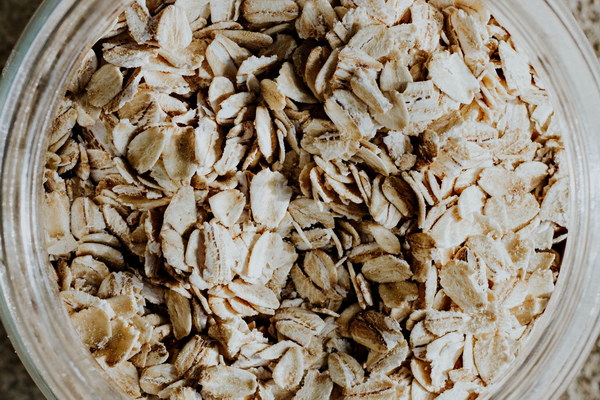Effective Strategies to Regulate Blood Sugar Levels A Comprehensive Guide
Introduction:
High blood sugar levels, also known as hyperglycemia, can lead to several health complications if left uncontrolled. It is crucial to understand the factors contributing to high blood sugar and implement effective strategies to regulate it. This article provides a comprehensive guide on how to manage high blood sugar levels and promote overall well-being.
1. Adopt a balanced diet:
A well-balanced diet plays a vital role in managing blood sugar levels. Focus on incorporating the following:
a. High-fiber foods: Foods rich in fiber, such as whole grains, fruits, vegetables, and legumes, can help slow down the absorption of sugar and improve blood sugar control.

b. Low-glycemic index (GI) foods: These foods have a minimal impact on blood sugar levels, making them an excellent choice for individuals with high blood sugar. Examples include nuts, seeds, legumes, and certain whole grains.
c. Lean proteins: Including lean proteins in your diet, such as chicken, fish, tofu, and legumes, can help stabilize blood sugar levels.
d. Healthy fats: Incorporate healthy fats from sources like avocados, nuts, seeds, and olive oil to improve insulin sensitivity and support blood sugar regulation.
2. Regular physical activity:
Physical activity is essential for managing blood sugar levels. Engaging in regular exercise can help:
a. Increase insulin sensitivity: Regular physical activity helps your body use insulin more effectively, leading to better blood sugar control.
b. Burn excess calories: Exercise helps burn excess calories, which can prevent weight gain and improve blood sugar levels.
c. Improve overall health: Regular physical activity has numerous health benefits, including reducing the risk of heart disease, stroke, and type 2 diabetes.
3. Monitor blood sugar levels:
Keeping a close eye on your blood sugar levels is crucial for managing high blood sugar. Use a glucose meter to monitor your levels and keep a record of your readings. This will help you identify patterns and make necessary adjustments to your diet and lifestyle.
4. Get enough sleep:
Sleep deprivation can negatively impact blood sugar levels. Aim for 7-9 hours of quality sleep each night to promote blood sugar regulation and overall health.
5. Manage stress:
Stress can lead to high blood sugar levels. Learn to manage stress through relaxation techniques, such as deep breathing, meditation, or yoga, to help keep your blood sugar in check.
6. Avoid smoking and limit alcohol consumption:
Smoking and excessive alcohol consumption can contribute to high blood sugar levels and increase the risk of developing diabetes. Quit smoking and limit alcohol intake to promote better blood sugar control.
7. Consult a healthcare professional:
If you have high blood sugar levels, it is essential to consult a healthcare professional. They can provide personalized advice, medication, and support to help you manage your blood sugar levels effectively.
Conclusion:
Managing high blood sugar levels is essential for maintaining overall health and preventing complications. By adopting a balanced diet, engaging in regular physical activity, monitoring blood sugar levels, ensuring adequate sleep, managing stress, avoiding smoking, and limiting alcohol consumption, you can effectively regulate your blood sugar levels and improve your overall well-being. Always consult a healthcare professional for personalized advice and support.









